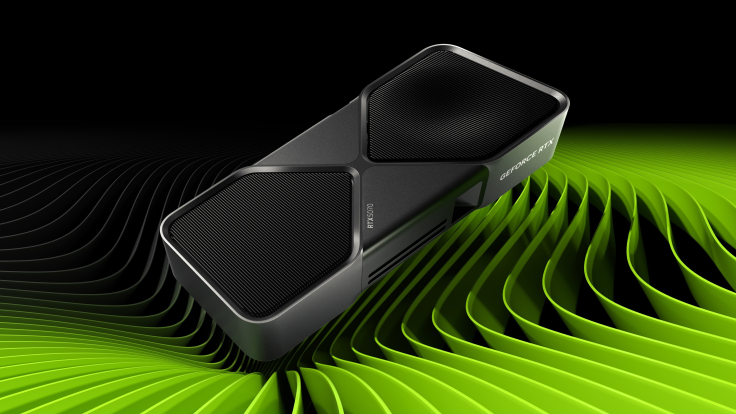New Nvidia GeForce RTX 5070 Graphics Cards Powered by Blackwell AI: Release Date, Price and More
The GeForce RTX 5070 GPU will be available for sale starting at £440

Nvidia has confirmed the release timeline for its next-generation GeForce RTX 5070 and 5070 Ti graphics cards, set to launch in February 2025. Laptops featuring the RTX 5070 Ti are expected to follow in March, with RTX 5070-powered laptops available from April.
The 5th-generation GPUs are built on Nvidia's Blackwell architecture, promising to deliver unprecedented realism and cinematic-quality visuals. Nvidia claims the GeForce RTX 5070 and 5070 Ti will offer frame rates twice as fast as their predecessors, the RTX 4070 and 4070 Ti.
Revolutionary AI-Powered Features
Equipped with AI-enabled DLSS 4 neural rendering technology, the GPUs utilise 5th-generation RTX Tensor Cores and 4th-generation Ray Tracing Cores to significantly boost frames per second (FPS), reduce latency, and enhance image quality.
The new DLSS Multi Frame Generation technology further elevates performance by leveraging AI to generate up to three frames per rendered frame, dramatically increasing FPS. Additionally, Reflex 2 technology, combined with Nvidia's innovative Frame Warp technology, reduces PC latency by as much as 75%, ensuring smoother and more responsive gameplay.
Nvidia's upcoming lineup aims to redefine the gaming and creative experience, setting a new standard for visual fidelity and performance.
The latency reduction works by updating the rendered game frame depending on the most recent mouse input before the signal is relayed to the display, providing unparalleled gaming responsiveness, aim precision, and reaction times.
GeForce RTX 5070 Series Performance: Specs At A Glance
The GeForce RTX 5070 graphics card packs 12GB GDDR7 memory that supports an overall memory bandwidth of 672 GB/sec versus the RTX 4070's 504 GB/sec.
Gamers using the RTX 5070 chip in their rigs can play high-end games like Black Myth: Wukong, Cyberpunk 2077, and Alan Wake 2 at frame rates 2X faster than the GeForce RTX 4070 at full Ray Tracing and DLSS configuration.
Meanwhile, the GeForce RTX 5070 Ti graphics card has 16GB of GDDR7 memory and delivers 896 GB/sec of total memory bandwidth, 78% greater than the RTX 4070 Ti's 504 GB/sec. Nvidia claims that this chip is 2X faster than the 4070 Ti model.
The company further stated that at a resolution of 2560x1440 and max settings with full Ray Tracing enabled, RTX 5070 Ti gamers can play the latest games at significantly higher frame rates while experiencing better image quality at lower latencies.
For the GeForce RTX 5070 Family Laptop GPUs, Nvidia has packed in 5,888 CUDA cores, 992 AI TOPS, and 12GB of GDDR7 memory for the 5070 Ti GPUs.
On the other hand, laptops with the RTX 5070 GPU will have 4,608 CUDA cores, 798 AI TOPS, and 8GB of GDDR7 memory. These 14.9 mm thin laptops will also use Blackwell Max-Q innovations to improve battery life by up to 40% more than their predecessors.
GeForce RTX 5070 Series Pricing
Nvidia has stated that the RTX 5070 Ti GPU will be available for sale starting at £601 ($749), while the RTX 5070 model will cost a minimum of £440 ($549).
All variants for these GPUs will be available from top card providers like ASUS, GIGABYTE, MSI, and ZOTAC.
Why is Blackwell Integration in 5th Gen Nvidia GPUs Special?
Nvidia claims that Blackwell is the most powerful GPU created for consumers, with up to 92 billion transistors, higher throughput, and better Tensor Core integration for better neural shader performance optimisation.
The latest Tensor Cores deliver tremendous AI processing power, accelerated by the FP4 precision model. This enables faster geometry model rendering while utilising lower graphics memory.
Furthermore, Blackwell also houses PCIe Gen 5 and DisplayPort 2.1b UHBR20, which can support displays up to 8K at a refresh rate of 165Hz.
© Copyright IBTimes 2025. All rights reserved.






















